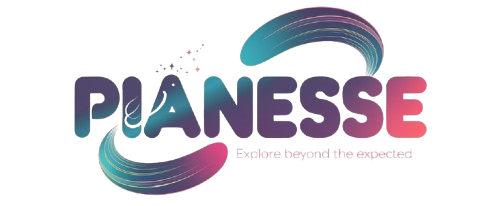The Dangers of Internet Piracy: Why Bragging Is a Bad Idea

The phenomenon of internet piracy has burgeoned since the advent of the digital age, transforming the way content is consumed and distributed. Initially, the internet served as a platform for sharing information freely, but as technology advanced, it became a double-edged sword. The ease of access to digital content, coupled with the anonymity provided by the internet, has led to a significant increase in unauthorized distribution of copyrighted materials.
From music and movies to software and e-books, virtually any form of intellectual property is susceptible to piracy. The rise of peer-to-peer file-sharing networks in the late 1990s and early 2000s marked a pivotal moment in this evolution, allowing users to share large files with minimal effort. Services like Napster and later BitTorrent revolutionized the way people accessed media, often bypassing legal channels entirely.
As internet speeds increased and storage capacities expanded, so did the scale of piracy. The proliferation of high-speed internet connections made it feasible for users to download large files quickly, while cloud storage solutions provided a convenient means to store and share pirated content. Moreover, the rise of streaming services has not only changed consumer habits but has also inadvertently fueled piracy.
Many users, frustrated by geographical restrictions or subscription costs, have turned to illegal streaming sites as an alternative. This shift has created a culture where piracy is often viewed as a norm rather than a crime, leading to a significant challenge for content creators and the industries that support them.
Key Takeaways
- Internet piracy has risen with the widespread availability of digital content and file-sharing technologies.
- Legal consequences of internet piracy can include hefty fines and even imprisonment.
- Ethically, internet piracy is considered stealing and can harm the livelihood of content creators.
- Internet piracy can have a significant impact on content creators, leading to loss of revenue and discouragement from creating new content.
- Bragging about internet piracy can lead to legal consequences and damage one’s reputation.
The Legal Consequences of Internet Piracy
Legal Consequences of Internet Piracy
Copyright infringement is a violation of intellectual property laws, which are designed to protect the rights of creators and ensure they receive compensation for their work. In many jurisdictions, copyright holders have the right to pursue legal action against those who distribute or download their content without permission. This can result in hefty fines, lawsuits, and even criminal charges in severe cases.
Examples of Legal Action Against Internet Piracy
For instance, the Recording Industry Association of America (RIAA) has been known to file lawsuits against individuals who illegally download music, resulting in settlements that can reach thousands of dollars.
Global Enforcement of Anti-Piracy Laws
The legal landscape surrounding internet piracy is complex and varies significantly from one country to another. In some regions, enforcement is stringent, with governments actively pursuing anti-piracy measures and collaborating with law enforcement agencies to crack down on illegal activities. Countries like the United States have implemented laws such as the Digital Millennium Copyright Act (DMCA), which provides a framework for addressing copyright infringement online. Conversely, in other parts of the world, enforcement may be lax or non-existent, allowing piracy to flourish unchecked. This disparity creates challenges for global content distribution and complicates efforts to combat piracy on an international scale.
The Ethical Implications of Internet Piracy

Beyond the legal ramifications, internet piracy raises profound ethical questions about ownership and respect for intellectual property. At its core, piracy undermines the fundamental principle that creators deserve recognition and compensation for their work. When individuals download or share pirated content, they are essentially depriving artists, writers, and developers of their rightful earnings.
This not only affects their livelihoods but also diminishes the incentive for innovation and creativity within various industries. The ethical dilemma becomes even more pronounced when considering the impact on smaller creators who may rely heavily on income from their work. Moreover, the normalization of piracy can lead to a broader cultural shift regarding how society values creative endeavors.
When piracy is perceived as acceptable behavior, it sends a message that intellectual property is not worth protecting. This attitude can erode respect for artists and their contributions, fostering an environment where exploitation becomes commonplace. The ethical implications extend beyond individual actions; they reflect societal values regarding creativity, ownership, and accountability.
As such, discussions about internet piracy must consider not only the legal aspects but also the moral responsibilities that come with consuming digital content.
The Impact of Internet Piracy on Content Creators
| Metrics | Data |
|---|---|
| Loss of Revenue | Estimated billions of dollars annually |
| Job Losses | Thousands of jobs in the creative industry |
| Impact on Investment | Decreased investment in new content creation |
| Legal Costs | Millions spent on legal battles against piracy |
| Quality of Content | Decreased due to lack of resources |
The ramifications of internet piracy are particularly pronounced for content creators who often find themselves grappling with lost revenue and diminished opportunities due to unauthorized distribution of their work. For musicians, filmmakers, authors, and software developers, piracy can translate into significant financial losses. According to a report by the Institute for Policy Innovation, music piracy alone costs the U.S.
economy billions annually in lost revenue. This loss is not merely theoretical; it translates into fewer resources for artists to produce new work, invest in marketing, or support their creative endeavors. Furthermore, internet piracy can distort market dynamics by creating an uneven playing field.
Established artists and large corporations may have the resources to weather the storm of piracy better than independent creators or smaller companies. As a result, piracy can stifle diversity in creative expression by favoring mainstream content over niche or innovative works that struggle to compete against free alternatives. This imbalance can lead to a homogenization of culture where only certain types of content thrive while others fade into obscurity due to lack of financial support.
The Risks of Bragging About Internet Piracy
In an age where social media amplifies voices and actions alike, bragging about engaging in internet piracy poses significant risks that extend beyond mere legal consequences. Individuals who publicly share their experiences with pirated content may inadvertently expose themselves to scrutiny from both legal authorities and industry watchdogs. Many copyright holders actively monitor online platforms for discussions related to piracy and may take action against those who openly admit to illegal activities.
This could lead to legal repercussions or even being targeted for lawsuits. Moreover, boasting about piracy can have reputational consequences that affect personal and professional relationships.
Friends, family members, employers, and potential collaborators may view such behavior as unethical or irresponsible. This perception can damage trust and credibility, making it difficult for individuals to engage in legitimate creative endeavors or secure employment within industries that prioritize respect for intellectual property rights.
The Role of Social Media in Exposing Internet Piracy

The Facilitation of Piracy
Social media platforms facilitate the rapid dissemination of pirated content through user-generated posts and shares. Sites like Twitter, Facebook, and Reddit often host discussions about where to find pirated materials or share links to illegal downloads. This ease of access can create a false sense of security among users who believe they are operating under the radar while engaging in illicit activities.
Raising Awareness about Piracy
Conversely, social media also plays a crucial role in raising awareness about the negative impacts of piracy on creators and industries alike. Campaigns aimed at educating users about copyright laws and promoting respect for intellectual property have gained traction on various platforms.
The Duality of Social Media’s Role
Organizations dedicated to protecting creators’ rights utilize social media to share success stories of artists who have suffered due to piracy while highlighting the importance of supporting legitimate channels for accessing content. This duality underscores the complexity of social media’s role in shaping public perceptions about piracy and its consequences.
The Importance of Educating Others About the Dangers of Internet Piracy
Education is paramount in addressing the challenges posed by internet piracy. Many individuals may not fully understand the implications of their actions when they engage in pirating content; they might view it as harmless or inconsequential. By fostering awareness about copyright laws and the ethical considerations surrounding intellectual property, we can cultivate a culture that values creativity and respects creators’ rights.
Educational initiatives can take various forms—workshops in schools, online courses about digital ethics, or community outreach programs aimed at informing users about the risks associated with piracy. Moreover, educating others about the dangers of internet piracy extends beyond legal consequences; it encompasses discussions about its broader societal impact. By highlighting how piracy affects not only individual creators but also entire industries and cultural diversity, we can encourage more responsible consumption habits among users.
This shift in mindset is essential for creating an environment where creativity thrives and where artists are supported rather than undermined by illegal practices.
The Alternatives to Internet Piracy
As awareness grows regarding the implications of internet piracy, it becomes increasingly important to promote legitimate alternatives for accessing content. Subscription-based services like Spotify for music or Netflix for movies offer users affordable options while ensuring that creators receive fair compensation for their work. These platforms have revolutionized how consumers engage with media by providing vast libraries of content at their fingertips without resorting to illegal downloads.
Additionally, many independent creators are exploring innovative distribution models that allow them to connect directly with their audiences while bypassing traditional gatekeepers. Crowdfunding platforms like Patreon enable artists to receive support directly from fans who appreciate their work, fostering a sense of community around creative endeavors. By championing these alternatives and emphasizing their benefits over pirated content, we can help shift consumer behavior toward more ethical practices that support artists and promote sustainable creative ecosystems.
In conclusion, addressing internet piracy requires a multifaceted approach that encompasses legal action, ethical considerations, education, and promotion of legitimate alternatives. By understanding its complexities and implications on various levels—from individual actions to broader societal impacts—we can work toward fostering a culture that respects creativity and supports those who contribute to it.
FAQs
What is internet piracy?
Internet piracy refers to the unauthorized downloading, sharing, or distribution of copyrighted material, such as movies, music, software, and books, through the internet.
Why is internet piracy illegal?
Internet piracy is illegal because it violates copyright laws, which are in place to protect the rights of creators and owners of intellectual property. Piracy deprives content creators of their rightful income and undermines the incentive to create new and innovative works.
What are the consequences of internet piracy?
The consequences of internet piracy can include legal action, fines, and even imprisonment. In addition, piracy can harm the industries that produce and distribute creative content, leading to job losses and reduced investment in new works.
How does internet piracy affect content creators?
Internet piracy can have a significant impact on content creators, as it deprives them of income from their work. This can make it difficult for creators to sustain their livelihoods and continue producing new content.
Why should people never brag about internet piracy?
People should never brag about internet piracy because it is illegal and unethical. Bragging about piracy can contribute to a culture that normalizes and encourages illegal behavior, ultimately harming the creative industries and the individuals who work within them.







